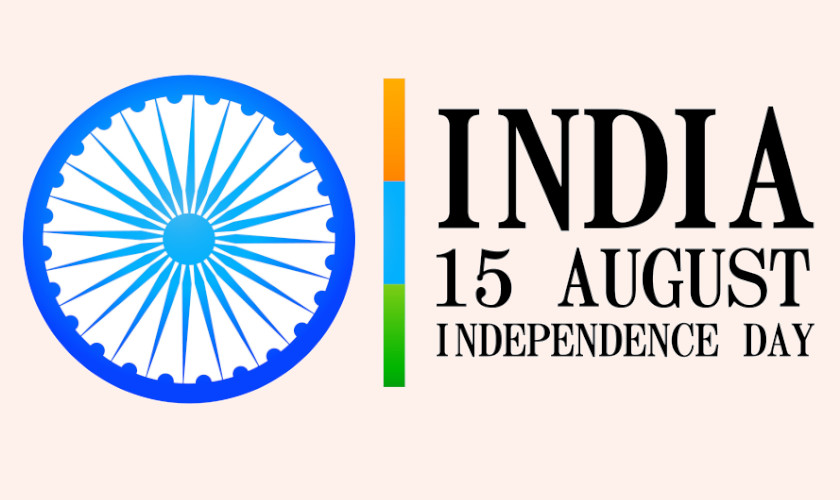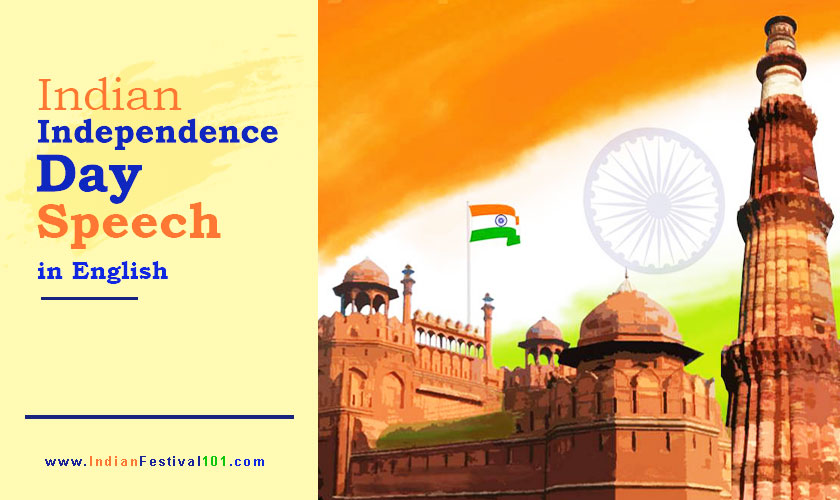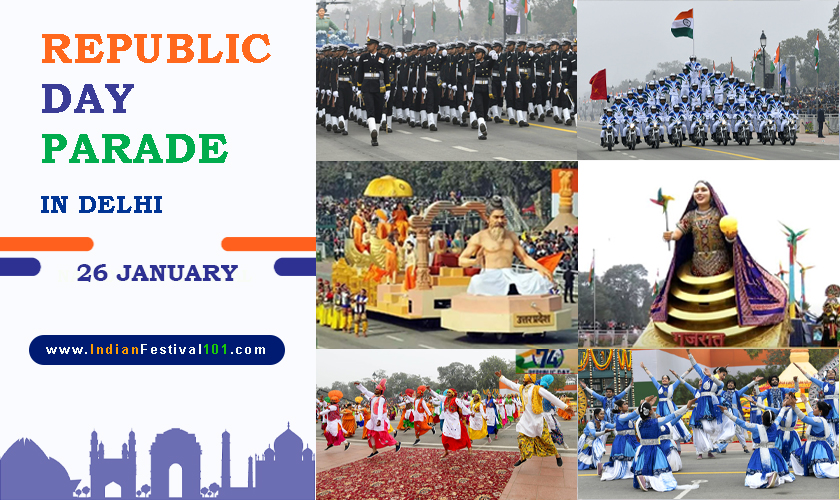India has several important days of historic importance and is collectively known as national festivals. The national festivals of India stand as pillars of national pride. These festivals hold profound significance in the hearts of every Indian who holds the spirit of freedom, democracy, and non-violence. In the Indian Festival list, we will find the National Festivals of India are of great importance. How many national festivals of India? In this article, we will understand the essence of National festivals of India uncovering interesting facts and exploring their profound significance.
List of National Festivals of India
| NATIONAL FESTIVAL OF INDIA | |||
| S.N. | DATE | NAME | DAY |
| 1 | 26 January 2023 | Republic Day | Thursday |
| 2 | 15 August 2023 | Independence Day | Tuesday |
| 3 | 2 October 2023 | Gandhi Jayanti | Monday |
In India Republic Day, Independence Day, and Gandhi Jayanti are considered National Festivals of India. Indian Republic Day and Indian Independence Day are both national holidays of supreme importance. National festivals of India have a distinctive quality that sets them apart from other festivals. It steps up preparations to mark the occasion, mobilizing all of its resources at each level of administration.
Significance of National Festivals:
Almost every nation has its national festivals. They celebrate their national festival collectively. The significance of National festival celebrations are in different means. National festival celebration in India is significant because-
1. Unity in Diversity:
National festivals bring together the whole nation to celebrate and enjoy hance play a crucial role in fostering a sense of unity in Diversity among India’s diverse population. These festivals are celebrated by all communities and with the same temperament. Regardless of language, religion, or region, the celebrations bring people together in a shared expression of patriotism. We can see social harmony during the national festival celebration.
2. Honoring Sacrifices:
National festivals remind us of the sacrifice and contribution of our freedom fighters who laid down their lives for the nation’s independence. They provide an opportunity for reflection on the struggles that shaped modern India. These occasions instil a deep sense of patriotism and love for the country, encouraging citizens to actively contribute to its progress.
3. Showcasing Cultural Heritage:
The national festivals provide a platform to showcase India’s diverse cultural heritage through music, dance, and traditional arts. It is the day when we the whole nation keep all our work aside and celebrate collectively. The celebrations, including parades, cultural programs, and displays of military prowess, serve as a platform to showcase India’s rich cultural heritage. Traditional dances, music, and art from various states are integral components of these festivities.
4. Guests of Honor:
Both Republic Day and Independence Day celebrations include a significant diplomatic element. A foreign dignitary is invited as the Chief Guest for the Republic Day parade, symbolizing India’s global relations.
5. Inspiring Future Generations:
By commemorating these national festivals, India instils a sense of pride and responsibility in its citizens, particularly the younger generation. It encourages them to understand and uphold the values enshrined in the Constitution. It is the day that the universal message of love and solidarity resounds from each corner of the country. National festivals serve as an educational tool, helping younger generations understand the history, principles, and values that form the foundation of the nation.
Indian Independence Day (15 August):
Indian Independence Day (15 August) is one of the most important national festivals. It is the day when we celebrate our freedom and pride. This day commemorates the historic moment in 1947 when India gained freedom from British rule.

The highlight of the festivities is the flag-hoisting ceremony at the iconic Red Fort in New Delhi by the Prime Minister. The tricolour unfurls, symbolizing the sovereignty and unity of the nation. Across the country, people participate in parades, cultural events, and patriotic songs, fostering a sense of national pride. Cultural programs are also organized. Performers and artists including children participate in performing on the Red Fort. To know more, Check: out Indian Independence Day
Indian Republic Day (26 January):
Indian Republic Day (26 January) is also one of the most important national festivals. the celebration of Republic Day in India, an occasion that honours the enactment of the Constitution of India in 1950. This momentous day signifies the transition of India into a sovereign, socialist, secular, and democratic republic.
To make this occasion memorable various events and programs are organized at India Gate. The Republic Day parade in New Delhi is a grand spectacle, showcasing India’s military might, diverse cultural heritage, and technological achievements. The President of India takes the salute, and the event attracts citizens from all walks of life. Patriotism fills the air as the tricolour flutters and the national anthem resonates through the hearts of millions. The Republic Day parade showcases living tableaux that depict various aspects of India’s cultural, social, and historical diversity. We can see the strength of the Indian armed forces on the Rajpath during the Republic Day celebration. Checkout:- Indian Republic Day
Gandhi Jayanti (2 October):
Gandhi Jayanti is also celebrated as a National festival in India. Celebrated on the 2nd of October is also a day of national importance. Though it is a national holiday, the celebration is not on the same scale as Republic Day and Indian Independence Day. The cerebration pays homage to the ‘Father of the Nation,’ Mahatma Gandhi.
Gandhi Jayanti gives us The message of Peace and harmony. Mahatma Gandhi, who led by example, Gandhi’s values and belief in Satyagraha (truth) and Ahimsa (non-violence) have stood the test of time. The celebrations focus on promoting Gandhian principles of truth, peace, and self-reliance. Prayer meetings, cultural programs, and cleanliness drives are organized nationwide. It is a day to reflect on Gandhi’s teachings and renew the commitment to fostering a just and equitable society. To know more, Check:- Gandhi Jayanti Celebration
National Festivals Celebration in India
While the main events unfold in the capital city, the enthusiasm for these festivals resonates in every corner of the country. Schools, colleges, and communities organize flag-hoisting ceremonies, cultural programs, and competitions. The spirit of unity and patriotism unites Indians from various states, languages, and backgrounds during these festivities.
Flag Hoisting Ceremony
The National Flag of India plays a significant role in national festival celebrations. The tricolour Indian National flag represents national pride and dignity in the sky. Thus flag-hoisting ceremony is carried out in state capitals, constituencies, district headquarters, and every administration level. Government offices, government institutions, agencies, and educational institutes hold a similar ceremony with stately pomp and show. The national anthem and national songs are played before and after the national festival celebration at various places. Know more about the Indian National Flag. Visit here:- Information about Indian National Flag
National Festival Celebration in New Delhi
The National Festival celebration in New Delhi presents a kaleidoscopic view of the country’s composite culture. Whether it is Independence Day, Republic Day, or Gandhi Jayanti, there is a grand celebration of the national festivals every year. You can see a glimpse of India’s military power. Awards and honours are given away with much fanfare. The mass media is put to efficient use.
National Festivals Celebration in Schools
National festivals are warmly celebrated in our educational institutions, constituting a vibrant and integral part of the overall educational experience. The festival and fun activities in schools play a crucial role in connecting children with our rich and diverse Indian culture, offering insights into the sacrifices made by our freedom fighters. Drawing competitions, essay writing contests, dance performances, and cultural programs have become common in schools, fostering values like discipline, social responsibility, and unity among students. These celebrations cultivate patriotism, nurturing a deep connection to India’s cultural tapestry.
National Festival observances in schools contribute to shaping responsible citizens imbued with pride and purpose. Independence Day witnesses cultural programs and speeches, reflecting on the struggles of our freedom fighters. Republic Day features parade ceremonies, while Gandhi Jayanti is marked by special programs paying homage to Mahatma Gandhi. The celebration of India’s National Festivals in schools becomes a transformative journey, moulding young minds with the ideals that form the bedrock of the nation.
Conclusion
India’s national festivals embody unity in diversity, transcending religious and regional boundaries. They foster a sense of belonging, reinforcing the cultural mosaic that defines the country. Independence Day, Republic Day, and Gandhi Jayanti symbolize India’s values – freedom, democracy, and unity in diversity. Beyond commemorations, they represent the nation’s soul. These celebrations are threads in the grand tapestry of India’s journey, from independence struggles to a democratic republic. Not mere dates, but symbols of resilience and enduring spirit. As we revel in festivities, let’s reflect on our collective responsibility to preserve and enrich the legacy left by our forbearers.
FAQs:
Q: What are the National Festivals of India?
A: There are 3 National Festival of India.
- Indian Independence Day
- Indian Republic Day
- Gandhi Jayanti
Q: Is Gandhi Jayanti National Festival of India?
A: Yes, Gandhi Jandhi Jayanti is celebrated as one of the 3 national festivals of India.





